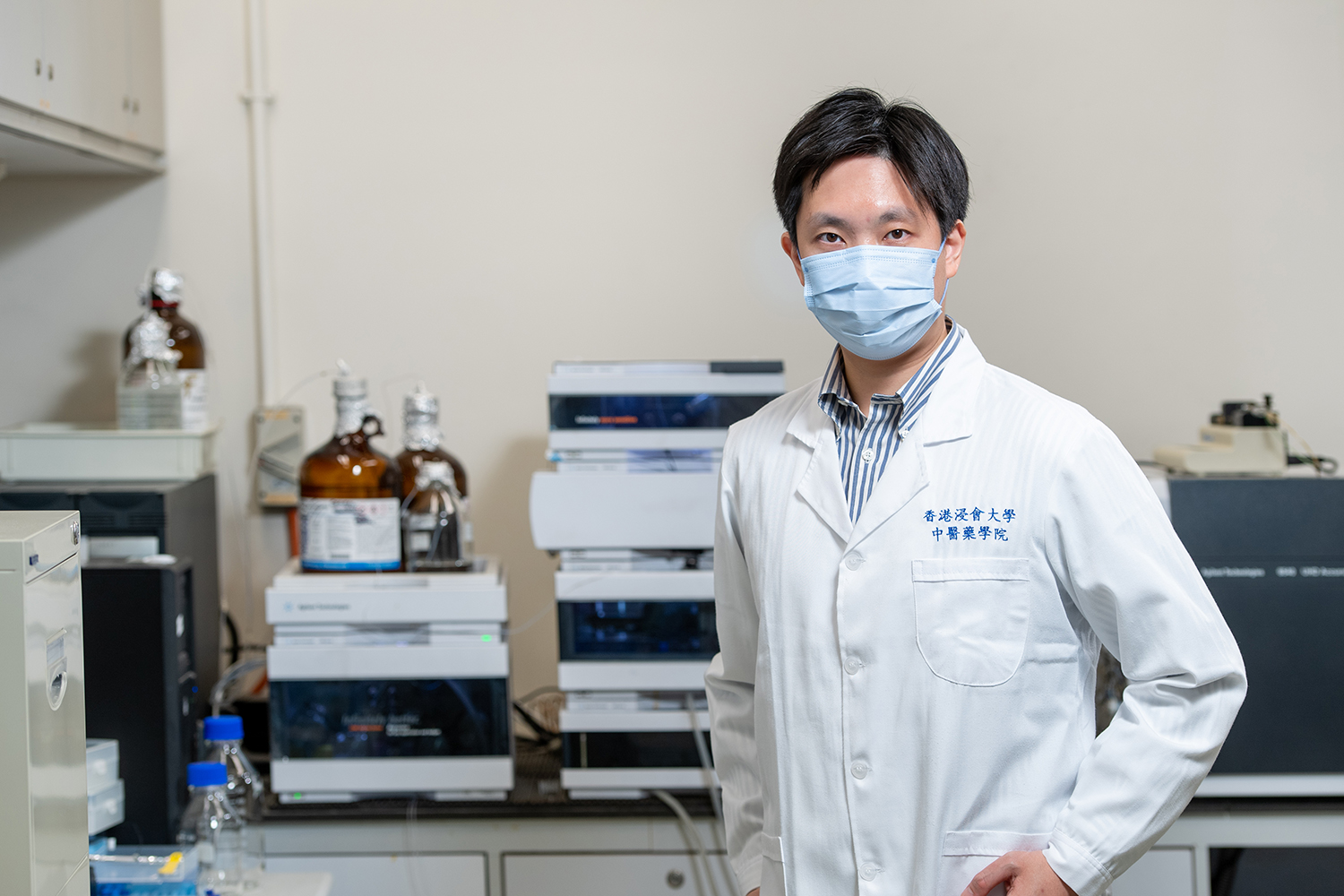Outstanding Performance as Early Career Researcher


Dr. WONG Hoi Leong Xavier
Assistant Professor
Chinese Medicine - Teaching and Research Division
An exceptional young researcher with considerable accomplishments in such short period of time, Dr. Wong Hoi Leong Xavier first joined the School of Chinese Medicine as a Research Assistant Professor in late 2016. His fruitful research on understanding the physiological basis of various human metabolic disorders has not only favourably positioned himself in the international community, but also helped to secure funding on furthering his work.
Driven by an immense interest in proteolytic enzymes, Dr. Wong has conducted cutting-edge studies on MT1-MMP, a cell-surface proteinase, to make new discoveries that challenge the conventional understanding of biological and pathological processes. Dr. Wong led one of the first studies to report on the importance of proteolysis on intracellular signalling pathways for growth and development. Upon his further researches on diabetes and obesity, his team identified MT1-MMP as an emerging modulator of appetite in central nervous system under stressed conditions. This finding has potential in improving on the treatment strategy of leading metabolic diseases. As a side research interest, Dr. Wong has established a link between functional bowel diseases and psychological events. This is an advanced discovery on understanding the regulatory role of intestinal stem cell niche.
This body of research on MT1-MMP has ensured Dr. Wong an emerging standing in the international arena. His ground breaking findings have been published in many reputable journals including three papers in Nature Communications, one paper in Nature Metabolism, one paper in Developmental Cell, and one manuscript under revision in Nature Cell Biology in the capacity of first and corresponding authors. His paper in the Developmental Cell was highly recommended as a “must read” article by F1000 prime, a prestigious peer review system on evaluating and rating top articles in biomedical sciences. A recent study published in Nature Metabolism has drawn a great attention from the research community, highlighted by several top scientific journals including Nature Reviews Endocrinology, Nature Metabolism and Science Signaling.
Dr. Wong was subsequently invited to present his findings at many conferences and plenaries, with the most notable being the Gordan Research Conference for Matrix Metalloproteinase, which is one of the most prestigious scientific meetings in the field. Harnessing the global exposure, he has proactively built up collaborative network with local and overseas prominent institutions, like the Hubrecht Institute and Harvard Medical School.
Despite his early career standing, the promising outcomes from Dr. Wong’s high-quality research work has led to a successful attainment of over HK$5.7 million in research grant, comprising two General Research Fund (GRF) projects, two fully-funded Health and Medical Research Fund (HMRF) projects, one National Natural Science Foundation of China (NSFC) Youth Scientist Grant project, and two more under the scheme of general programme of Guangdong Natural Science Foundation (GDNSF).
Furthermore, Dr. Wong has proven himself a capable mentor with a keen eye for talents, and an ability to communicate his passion and knowhow with young scientists. In the classroom, students learn from the latest research findings in a context-relevant manner.
With such a competent research portfolio in terms of both quality and quantity at a young age, Dr. Wong has clearly demonstrated his calibre through innovative findings and his potential for greater achievements. The Selection Committee takes pleasure in awarding him for the President’s Award for Outstanding Performance as Early Career Researcher.